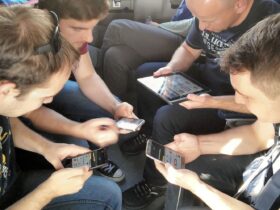You have an interesting game with a great plot, breathtaking dialogues, and great visuals. The game is popular on the local market, but you strive for more. Sure, your game deserves international recognition. Still, without a professional Chinese translation agency, the game won’t be so appealing for target customers. They have their own gaming culture, customs, and rituals that you need to know. Localization is not a plain translation because it takes your game to a whole new level of cultural adaptation. If you want to know how to properly prepare for localization, read on to see the most recent tips from professionals.
Plan localization from the very beginning
Some game studios develop a game first and think about localization second. If this is your case, you can still localize your game, but it will be more costly and time-consuming. When you plan your localization in the very beginning, you save costs because you don’t need to do extra work. The thing is, languages take different amounts of space and are read differently, so you will have to alter your UI to fit them. The UI should be flexible by default to save time and money.
Research target countries, their culture, and laws

Cultures differ, as well as laws, and people’s perception of the game. Some of the original game elements will need changing or even re-creation. In many cases, you’ll have to change visuals, because some images may be appropriate for one audience and unacceptable for the other. For example, in the Arab world, uncovered body parts are unacceptable. The same goes for slang and obscenities, because in some countries, the game may be banned because of 18+ elements. Therefore, carefully research legislation and culture to successfully run the game.
Define which parts you will localize
There are lots of elements in the game. These are not only dialogues and menu buttons. All the user interface details need to be localized. Take care of in-game localization, visuals, user interface, marketing content, and press kit translation. If you feel unsure how to translate each of them, read a guide for translators to help you with the main types. This will ensure relevant word choices and a modern approach which will help to reach your audience.
Research gamer culture
Surely, Japanese players will act and think differently from German ones. For example, people from different areas prefer subtitling to voice-over, or vice versa. In some countries, gamers choose some platforms over others. So, be sure to research how people play before localizing your game.
Find your translators beforehand

There are three options available. First, you may try and translate a game by yourself if you feel confident with the target language. Still, remember that you will probably need a native speaker to test-drive your game before the release. The second option is hiring a freelance translator or using crowdsourcing translation like on Steam. This is cheaper and fits indie games. Finally, you can read online translation services reviewed and pick a professional translator. Be careful to choose only people who will localize your content and not just simply translate it.
Leave budget for voice-over
True, some players prefer subtitling to retain the original atmosphere of the game. However, for the many, listening to high-quality voice-over is one of the game’s delights. It may be costly sometimes, so leave a part of the budget for that one. Remember that voice-over and sound in general is an essential part of the gaming process for many people, so you can’t miss the point.
Localization isn’t easy. It takes into account multiple details like cultural perception, gaming customs and ways, laws of the target country, and marketing approaches. Be prepared that you will have to re-create some parts of the original game because the target audience won’t understand them. That goes for jokes, set expressions, and foreign realia unknown for target users. Also, before localization, make sure that all of your UI elements are flexible because different languages tend to take different amounts of space and read differently. Overall, if you prepare for localization well, the process will be smooth, fast, and won’t take you much money and extra resources.
BIO
Mark Blackwood is an expert linguist who has experience with the game developing process. Mark says that learning languages is one of his greatest passions. Also, he enjoys traveling, horse riding, and hiking in new places.













Leave a Reply